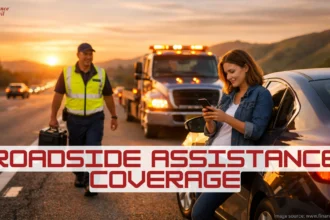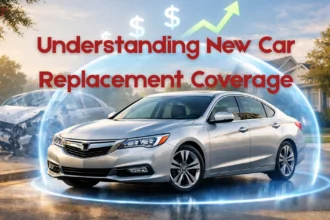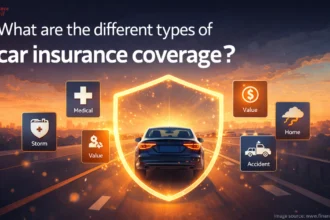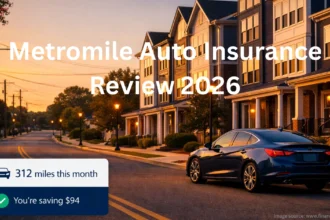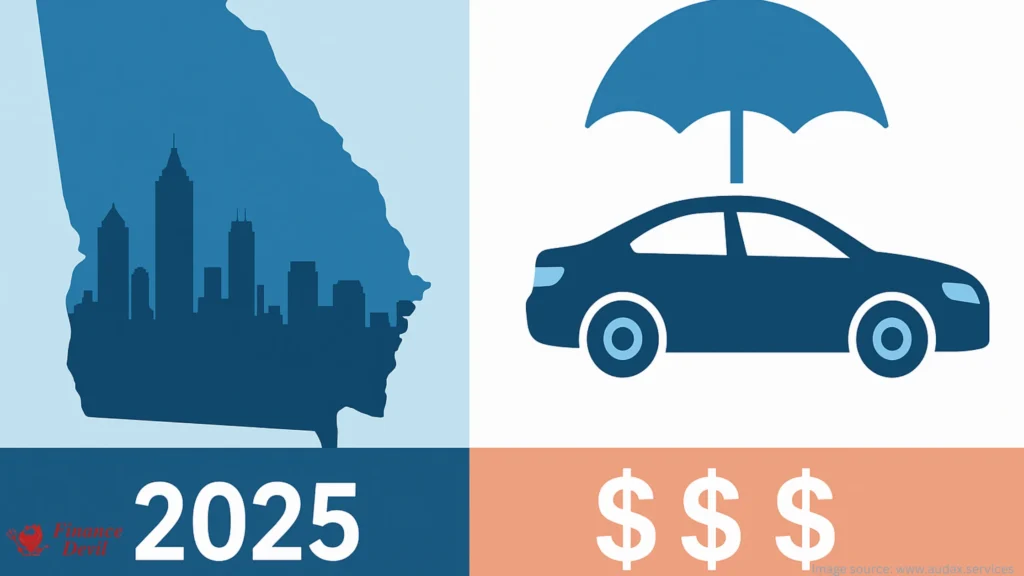
Georgia drivers are paying an average of $2,867 annually for car insurance, nearly $200 more than the national average. Yet many residents don’t realize they could cut their premiums by 30-40% simply by choosing the right provider and coverage options. With insurance rates fluctuating monthly and new discount programs launching regularly, now is the perfect time to review your coverage.
Why Georgia Car Insurance Costs Are Rising in 2025
Several factors are driving up insurance costs across Georgia:
- Increased accident rates: Georgia saw a 12% increase in traffic accidents in 2024, particularly around Atlanta’s expanding metro area
- Severe weather claims: Hurricane damage and flooding claims have increased by 18% statewide
- Rising repair costs: Vehicle repair costs have jumped 22% due to supply chain issues and advanced vehicle technology
- Medical cost inflation: Personal injury claims now average 35% higher than pre-2020 levels
Understanding these factors helps explain why shopping around has become more critical than ever for Georgia drivers.
What Affects Your Car Insurance Rates in Georgia
Insurance companies evaluate multiple factors when calculating your premium:
Location-Based Factors
- Urban vs. rural: Atlanta drivers pay approximately 45% more than those in rural counties like Echols or Webster
- Crime rates: Areas with higher vehicle theft rates see increased comprehensive coverage costs
- Weather patterns: Coastal counties face higher premiums due to hurricane risk
Personal Risk Factors
- Driving record: A single speeding ticket can increase rates by 15-25%
- Credit score: Georgia allows credit-based insurance scoring, with excellent credit saving up to 30%
- Age and experience: Teen drivers face premiums 2-3 times higher than experienced adults
- Annual mileage: Low-mileage drivers can qualify for significant discounts
Vehicle-Related Factors
- Make and model: Luxury vehicles and sports cars cost more to insure
- Safety ratings: IIHS Top Safety Pick winners often qualify for discounts
- Theft rates: Frequently stolen models face higher comprehensive premiums
Best Car Insurance Companies in Georgia for 2025
Based on comprehensive analysis of rates, customer satisfaction, and coverage options, here are Georgia’s top insurers:
| Company | Overall Rating | Avg. Full Coverage | Best For |
| Auto-Owners | 4.8/5 | $2,107/year | Customer service & comprehensive coverage |
| Geico | 4.6/5 | $3,315/year | Digital tools & discounts |
| Progressive | 4.4/5 | $1,950/year | Accident forgiveness |
| State Farm | 4.3/5 | $3,504/year | Local agent service |
| USAA | 4.3/5 | $2,521/year | Military families |
Auto-Owners: Best Overall Car Insurance in Georgia
Auto-Owners consistently ranks highest for customer satisfaction while maintaining competitive rates. Key advantages include:
- Superior customer service: Ranked #1 in Georgia for claims satisfaction
- Comprehensive coverage options: Offers unique add-ons like diminished value coverage
- Strong financial stability: A+ rating from AM Best
- Competitive pricing: 26% below state average for many drivers
Geico: Best for Tech-Savvy Drivers and Discounts
Geico excels in digital convenience and discount opportunities:
- Extensive discount program: Up to 25% off for good drivers, students, and military
- Award-winning mobile app: Rated 4.8/5 on app stores
- 24/7 customer service: Available online, by phone, or through the app
- High-risk driver friendly: Specializes in coverage for drivers with violations
Progressive: Best for Accident Forgiveness
Progressive offers the most comprehensive accident forgiveness options:
- Three types of accident forgiveness: Including immediate coverage for new customers
- Name Your Price tool: Helps find coverage within your budget
- Snapshot program: Usage-based discounts up to 30%
- Bundle discounts: Save up to 12% when combining auto and home insurance
How to Compare Car Insurance Rates in Georgia
Step 1: Determine Your Coverage Needs
Georgia requires minimum liability coverage of:
- $25,000 per person for bodily injury
- $50,000 per accident for bodily injury
- $25,000 per accident for property damage
However, these minimums rarely provide adequate protection. Consider these coverage levels instead:
Recommended Coverage for Most Drivers:
- Bodily injury: $100,000/$300,000
- Property damage: $100,000
- Comprehensive and collision: $500-$1,000 deductible
- Uninsured motorist: $100,000/$300,000
Step 2: Gather Multiple Quotes
Request quotes from at least 4-5 companies using identical coverage limits. Companies to consider:
- Auto-Owners
- Geico
- Progressive
- State Farm
- Travelers
- Allstate
Step 3: Compare Total Value, Not Just Price
Consider these factors beyond premium cost:
- Claims handling reputation
- Financial stability ratings
- Available discounts
- Customer service quality
- Digital tools and convenience
Proven Tips to Lower Your Car Insurance Costs in Georgia
Available Discounts in Georgia
Most insurers offer these money-saving opportunities:
Safe Driving Discounts:
- Good driver discount: 10-25% off
- Defensive driving course: 5-10% off
- Telematics programs: Up to 30% off
Multi-Policy Discounts:
- Auto + home insurance: 15-25% savings
- Multiple vehicles: 10-25% per additional car
Demographic Discounts:
- Good student (3.0+ GPA): 10-15% off
- Military/veteran: 5-15% off
- Senior driver: 5-10% off
Smart Coverage Adjustments
Increase Your Deductible Raising your deductible from $250 to $1,000 can reduce premiums by 15-30%. Only choose a deductible you can afford to pay out-of-pocket.
Drop Unnecessary Coverage For older vehicles (10+ years), consider dropping comprehensive and collision coverage if the annual premium exceeds 10% of the car’s value.
Optimize Your Coverage Limits Review your liability limits annually. If your net worth has increased, consider higher limits to protect your assets.
Credit Score Improvement
Since Georgia allows credit-based insurance scoring:
- Pay bills on time consistently
- Keep credit utilization below 30%
- Monitor your credit report for errors
- Consider a secured credit card if rebuilding credit
Common Mistakes Georgia Drivers Make When Choosing Car Insurance
Mistake 1: Choosing Based on Price Alone
The cheapest option often provides minimal coverage and poor claims service. A company that saves you $200 annually but delays claims or provides inadequate coverage costs more long-term.
Mistake 2: Buying Minimum Coverage Only
Georgia’s minimum requirements ($25,000/$50,000/$25,000) are insufficient for most accidents. The average car accident claim now exceeds $50,000, leaving minimum coverage drivers personally liable for the difference.
Mistake 3: Not Shopping Around Annually
Insurance rates change frequently. Companies that offered competitive rates last year may no longer be the best option. Set a yearly reminder to compare quotes.
Mistake 4: Overlooking Local and Regional Insurers
National brands aren’t always the best choice. Regional insurers like Georgia Farm Bureau often provide excellent service and competitive rates for local drivers.
Georgia-Specific Coverage Considerations
Uninsured Motorist Protection
Approximately 12% of Georgia drivers operate without insurance—higher than the national average of 10%. Uninsured motorist coverage protects you when at-fault drivers lack adequate insurance.
Weather-Related Coverage
Georgia’s severe weather requires specific considerations:
- Comprehensive coverage: Essential for hail, wind, and flood damage
- Rental car coverage: Important during extended storm-related repairs
- Gap insurance: Critical if financing a vehicle in hurricane-prone areas
SR-22 Requirements
If you’ve had a license suspension, DUI, or serious violation, you may need SR-22 filing. Not all insurers provide this service, so verify availability when shopping.
Expert Tips from Insurance Professionals
According to Mark Friedlander, spokesperson for the Insurance Information Institute: “Georgia drivers should focus on total value rather than just premium cost. A company that handles claims efficiently and provides excellent customer service often saves money in the long run, even if their rates are slightly higher upfront.”
Key professional recommendations:
- Review coverage every six months
- Document all vehicles’ safety features for potential discounts
- Consider usage-based insurance if you drive less than 10,000 miles annually
- Bundle policies when mathematically advantageous
When to Consider Switching Insurance Companies
Switch if you experience:
- Premium increases exceeding 15% without claims or violations
- Poor claims handling or customer service
- Life changes affecting your risk profile (marriage, new home, etc.)
- Discovery of better rates and service elsewhere
The best time to switch is 30-45 days before your renewal date, allowing time for comparison shopping without coverage gaps.
The Bottom Line: Take Action Now
Georgia insurance rates change monthly, and the best deals often have limited availability. Companies like Auto-Owners, Geico, and Progressive consistently offer competitive rates and superior service, but your specific situation determines which provides the best value.
Don’t wait until renewal time, rates and availability change daily. Get quotes from multiple providers now to ensure you’re not overpaying for coverage.
Ready to start saving? Compare personalized quotes from Georgia’s top insurers in just 5 minutes.
Frequently Asked Questions
What is the cheapest car insurance in Georgia?
Geico typically offers the lowest minimum coverage rates at approximately $768 annually, while Auto-Owners provides the best value for full coverage at $2,107 per year. However, rates vary significantly based on individual factors like age, driving record, and location.
How much car insurance do I need in Georgia?
While Georgia requires only $25,000/$50,000/$25,000 in liability coverage, experts recommend at least $100,000/$300,000/$100,000 plus comprehensive and collision coverage. This provides adequate protection against today’s accident costs.
Can I get car insurance with a DUI in Georgia?
Yes, companies like Geico, Progressive, and State Farm provide coverage for high-risk drivers. Expect to pay 40-100% more than standard rates, but costs decrease over time with a clean driving record.
Do I need uninsured motorist coverage in Georgia?
While not required, uninsured motorist coverage is highly recommended since 12% of Georgia drivers lack insurance. This coverage protects you from at-fault drivers who can’t pay for damages.
How does my credit score affect car insurance rates in Georgia?
Georgia allows credit-based insurance scoring, meaning poor credit can increase rates by 30-50%. Excellent credit typically reduces premiums by 10-25% compared to average credit scores.
What discounts are available for Georgia drivers?
Common discounts include safe driving (10-25%), multi-policy bundling (15-25%), good student (10-15%), military service (5-15%), and telematics programs (up to 30%).
When should I drop comprehensive and collision coverage?
Consider dropping these coverages when their annual cost exceeds 10% of your vehicle’s actual cash value, typically on cars 10+ years old worth less than $3,000.
How often should I shop for car insurance in Georgia?
Review rates annually or after major life changes. Insurance companies adjust rates frequently, so last year’s best deal may no longer be competitive.
What should I do after a car accident in Georgia?
Contact police if there are injuries or significant damage, exchange information with other drivers, document the scene with photos, and notify your insurance company within 24 hours.
Are there special considerations for Atlanta drivers?
Atlanta’s urban environment typically results in higher premiums due to increased accident risk, theft rates, and repair costs. Consider higher liability limits and comprehensive coverage in metro areas.
In another related article, How to Switch Home Insurance Companies: Your Complete 2025 Guide to Saving Money and Getting Better Coverage


